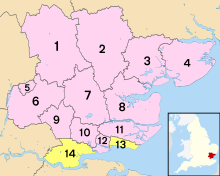Decentralized markets permit the age organizations to pick their particular manner to give energy to their day-ahead bid (that indicates cost and area). The supplier can utilize any unit available to its (supposed “portfolio-based offering”) or even compensate one more organization to convey the energy. The market has the focal administrator that only controls the framework continuously, however with essentially reduced Power to Choose to intercede in front of conveyance. This plan makes the administrator’s responsibility for bandwidth less of an issue, and European nations, except for the UK, grant it (following the autonomous transmission framework administrator or ITSO model). While certain administrators in Europe are associated with organizing the day-ahead and intra-day showcases, different ones are not. For instance, the UK market after the New Power Exchanging Courses of action UK and the market in New Zealand let the business sectors figure out every one of the contacts before ongoing. This dependence on monetary instruments prompts the extra names for the decentralized business sectors: trade based, unbundled, and reciprocal.

Risk The executives
- Monetary gamble the executives much of the time a high need for members in liberated power markets because of the significant cost and volume takes a chance that the business sectors can show. An outcome of the intricacy of a discount power market can be incredibly excessive cost unpredictability on the occasion of pinnacle interest and supply deficiencies.
- The specific attributes of this cost risk are profoundly reliant upon the actual essentials of the market, for example, the blend of kinds of age plants and connection among request and atmospheric conditions. Value hazard can be manifest by cost “spikes” which are difficult to anticipate and cost “steps” when the hidden fuel or plant position changes for extensive stretches.
- Volume risk is frequently used to mean the peculiarity by which power market members have dubious volumes or amounts of utilization or creation. For instance, a retailer can’t precisely anticipate customer interest for a specific hour above a couple of days into the future and a maker can’t anticipate the exact time that they will have a plant blackout or deficiencies of fuel.
- An intensifying component is likewise the normal relationship between’s outrageous cost and volume occasions. For instance, cost spikes much of the time happen when a few makers have plant blackouts or when a few customers are in a time of pinnacle utilization. The presentation of significant measures of discontinuous power sources, for example, wind energy might influence market costs.
Power retailers
Who in complete buy from the rebate market, and generators who in an all-out proposition to the markdown market, are given these expense and volume influences, and to shield themselves from unusualness, they will go into “support contracts” with each other. The development of these arrangements changes by the regional market on account of different shows and market structures. Notwithstanding, the two easiest and most normal structures are basic fixed cost forward agreements for actual conveyance and agreements for contrasts where the gatherings concur a strike cost for characterized periods. On account of an agreement for distinction, if a subsequent discount cost record (as referred to in the agreement) in any period is higher than the “strike” value, the generator will discount the contrast between the “strike” cost and the genuine cost for that period. Likewise, a retailer will discount the distinction to the generator when the genuine cost is not exactly the “strike cost”. The genuine cost list is at times alluded to as the “spot” or “pool” cost, contingent upon the market.



